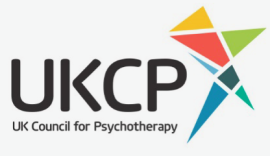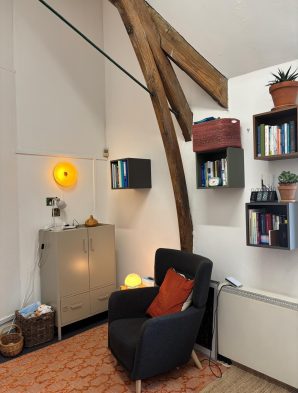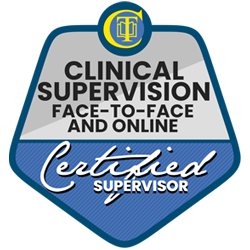Welcome, and thank you for visiting Therapy with Heart
Psychotherapy, Mentoring and Supervision in Brighton, Hove and Online
My work experience
Hi, I’m Michelle, a psychotherapist based in Brighton and I also work online via zoom. With over 30 years of experience in health and social care and a specialisation in mental health since 1996, I’ve worked with a diverse range of individuals, including those with disabilities, older adults, children, and young people, as well as people living with physical and learning challenges.
A significant part of my career was dedicated to supporting students' mental health at a university. This experience gave me a deep understanding of the emotional and psychological challenges faced by young people, including neurodivergent individuals, those living with complex mental health issues, and people who have used psychiatric services.
My primary area of focus is trauma—particularly trauma arising from difficult or abusive early relationships. This can include childhood emotional, physical, or sexual abuse, neglect, or other distressing experiences that leave lasting emotional scars. Trauma can affect every aspect of life, from how we relate to others to how we manage stress and emotions. It can lead to symptoms such as anxiety, dissociation, and difficulty in forming healthy relationships.
My Approach
I work from a collaborative approach, meaning that therapy is not just about me providing guidance, but about us working together to explore your experiences, uncover meaning, and find ways to support your healing journey. Your voice and experience are at the centre of our work, and we will move at a pace that feels right for you. I also take a relational and somatic approach, understanding that trauma often manifests in the body and impacts both the mind and the physical self. We will pay attention to how you feel in the moment and how emotions show up in your body to help you build greater awareness, safety, and regulation.
In addition to my work with trauma, I also have extensive experience supporting those dealing with dissociation and complex emotional challenges. Whether you’ve experienced childhood trauma, dissociation, or anxiety, my goal is to help you reconnect with your inner strength and sense of safety.
I’ve been in private practice since 2009 and completed advanced training as a psychotherapist at the Minster Centre in London in 2018. My training, combined with my years of experience, allows me to offer a compassionate and client-centered approach, grounded in empathy, respect, and collaboration.
If you're struggling with trauma, anxiety, dissociation, or any other emotional difficulty, I am here to offer support. Together, we can create a space where you feel heard, understood, and empowered to heal..
Trauma Therapy in Brighton, Hove and Online
Specific areas of interest and expertise
Trauma and Anxiety Therapy
Anxiety can feel overwhelming—like you're constantly bracing for something to go wrong, even when nothing is. Often, these experiences are deeply rooted in earlier trauma or prolonged stress, especially from challenging or unsafe relationships in childhood. Whether it’s physical, emotional, or sexual abuse, or neglect, these early experiences can shape how we relate to ourselves and others in the present.
I offer a relational and somatic approach to therapy, which means we’ll work not only with thoughts and emotions, but also with how trauma and anxiety show up in your body. Our sessions become a space where you can begin to feel safe enough to slow down, reconnect with yourself, and make sense of what’s been overwhelming. Healing doesn’t happen in isolation—it happens in connection.
If this resonates with you, you’re warmly invited to reach out. Together, we can begin the process of helping you feel more grounded, supported, and at ease.
Read more about trauma therapy here.
Specialist Support for Complex Trauma and Dissociation
I specialise in working with people whose difficulties stem from early relational trauma—particularly those who have experienced childhood abuse or neglect. This includes support for individuals who have survived physical, emotional, or sexual abuse, or who grew up in environments that felt unsafe, invalidating, or chaotic.
I also have a particular interest and experience in working with dissociation, including Dissociative Identity Disorder (DID) and Other Specified Dissociative Disorder (OSDD)—sometimes referred to as partial DID. OSDD is a lesser-known but more common form of complex dissociative disorder, where individuals may experience different identity states or parts, without the more distinct separations or amnesia that typically characterise DID. If you're living with dissociation, you may feel confused, disconnected, or like parts of you are in conflict. Therapy can help you build a compassionate understanding of your internal experience and support integration at a pace that feels safe.
Inclusive and Accessible Therapy
I am committed to offering a therapy space that is inclusive, trauma-informed, and accessible. I have extensive experience working with disabled people, including those navigating physical and sensory impairments, chronic illness, pain conditions, and fatigue-related disorders. I also work with individuals experiencing complex trauma alongside psychosis or other serious mental health conditions.
My practice is neurodivergent-affirming, and I support clients with Autism, ADHD, developmental coordination disorder (Dyspraxia), Dyslexia, and other forms of neurodivergence. Therapy is always tailored to you—there is no ‘right’ way to show up.
Support with Family Estrangement
Family relationships can be a profound source of pain—especially when they have been marked by abuse, control, or emotional neglect. I work with people who are navigating the grief, guilt, or relief that may come with family estrangement or are considering creating distance from family relationships that have become harmful or unsustainable.
Therapy can help you explore your experience with compassion and clarity, supporting you to make choices that honour your wellbeing.
Therapists and Helping Professionals Welcome
I warmly welcome therapists—whether experienced or in training—as well as professionals working in health and social care. If you're looking for a space to reflect, make sense of your own history, or simply be supported in your own emotional work, I offer a confidential and collaborative environment.
What to expect
Starting therapy can feel daunting—especially if you've learned to manage alone or if past experiences with support weren't safe or helpful. I aim to create a space that feels grounded, compassionate, and collaborative from the very beginning.
Initial Contact
You’re welcome to reach out by email or using the contact form. If you’d like, we can arrange a brief zoom call so you can ask any questions and get a sense of whether working together feels like the right fit.
First Sessions
The first few sessions are a chance for us to get to know each other. There’s no pressure to tell your whole story at once—we go at your pace. I’ll listen carefully to what brings you here, what’s felt difficult, and what you might be hoping for. Together, we’ll begin to build a shared understanding of your experience and how therapy can support you.
Working Together
Therapy unfolds differently for each person. Some people come with very specific goals, while others begin with a general sense that something isn’t quite right. Whether you're living with the effects of trauma, dissociation, anxiety, or long-term emotional distress, our work will be guided by what feels most helpful and meaningful to you. I offer a relational and somatic approach, grounded in safety, curiosity, and respect for all parts of you.
Length and Frequency
Sessions are usually weekly and last 50 minutes. Some people engage in therapy short-term; others choose to work longer-term, particularly when healing from complex trauma or long-standing difficulties. We’ll review together as we go.
Your Autonomy Matters
You are always in charge of your therapy. You can ask questions, give feedback, and say what does or doesn’t feel helpful. I am here to support—not to diagnose, fix, or push. Healing happens at your pace, in your own time.

Trauma Therapy in Brighton, Hove and Online
Trauma therapy
Many people who have been chronically abused and neglected have symptoms that may include:
Difficulty regulating emotions and impulses
Dissociation such as spacing out, feeling unreal, losing time, internal voices, and amnesia
Self-harming behaviours or addiction issues
Problems forming or sustaining healthy relationships
Feeling terminally stuck and unable to move forwards
Unexplained symptoms, persistent or recurrent pain, chronic fatigue, headaches
Enduring fear, guilt, anger or sadness and/or chronic feelings of emptiness, numbness or shutdown
I am offering a new form of trauma therapy called TIFT (Trauma Integrating Flow Therapy)
TIFT therapy is specifically designed for individuals who have experienced complex trauma, including pre-verbal trauma and neglect that may not be accessible through traditional talk-based therapies due to the absence of words or images. TIFT places great emphasis on creating a safe environment and restoring a sense of safety, dignity, and trust within the client's whole system, encompassing the body and mind.
Tift is grounded in the present moment and utilizes minimal exposure to traumatic events. Instead, the therapy works with the implicit imprints of the trauma which often create distress and can be difficult to resolve using traditional talk therapy.
Over time, clients often report an increase in self-compassion, a general decrease in troubling symptoms such as addictions and dissociation, and an overall sense of moving forward in life with greater clarity. Life makes more sense because the internal system feels more coherent.
I have found this approach both gentle and profound, aiming to facilitate significant and lasting changes, even for individuals who have previously undergone therapy with limited success.
Supervision in Brighton, Hove and Online
Supervision
I offer clinical supervision to therapists seeking a reflective, supportive space to develop confidence, refine clinical skills, and explore complex cases. With a background spanning charities, universities, and specialist trauma services, I bring a broad and informed perspective to supervision. My approach is collaborative, trauma-informed, and ethically grounded, ensuring a safe and constructive environment for growth.
Whether you are newly qualified or an experienced practitioner, I support you in strengthening your therapeutic approach, enhancing client outcomes, and building professional resilience. Supervision is tailored to your needs, offering a balance of reflection, challenge, and encouragement to help you grow as a therapist. If you are interested in learning more about my services or would like to discuss how we can work together, please do not hesitate to reach out.
Get in touch
I offer a free 30minute online chat if you have any questions about how I work. This enables us to discuss the reasons you are thinking of coming to counselling, whether it could be helpful for you and whether I am the right therapist to help.
You can also email or text me on 07552 236738. Please do not ring me as I am not usually able to answer calls. However, I am happy to discuss any queries or questions you may have prior to arranging an initial appointment
All enquires are usually answered within 24 hours, and all contact is strictly confidential and uses secure phone and email services.
Resources
Please note:
The following resources are not endorsements. Please use your own judgement when taking advice
My location
Sessions are generally 50 minutes and can take place either face-to-face in a comfortable room in Brighton, East Sussex, or via Zoom. Some early morning appointments are offered but please note I do not work in the evenings.
Fees & availability
I offer a sliding scale of £65-£85 for a 50 minute psychotherapy session. Supervision is £70 for an hour. Please be aware that I ask for 1 week's notice of any cancellations. Where a cancellation is unavoidable I will try to offer an alternative where I am able.
I am registered with AXA health insurance and can register for other UK based insurers on request
Availability
Monday 8-4pm
Tuesday 9-5pm
Wednesday 8-4pm
Thursday 9-5pm
Friday 9-11am
© Michelle Butler
Powered by WebHealer









